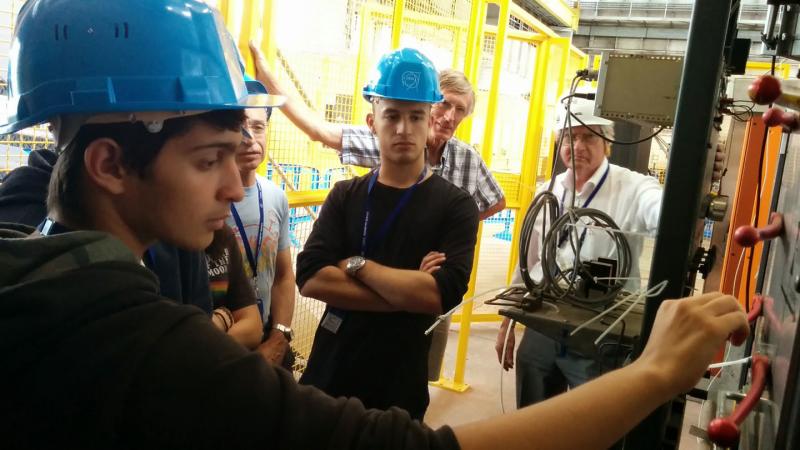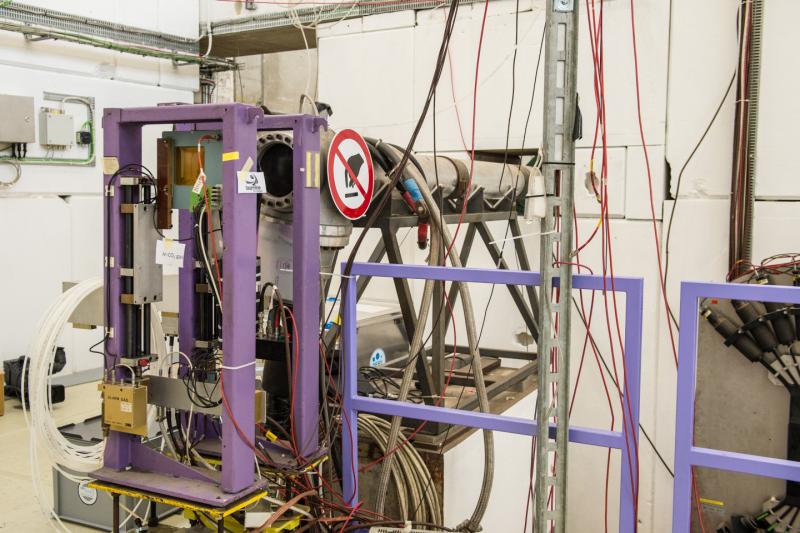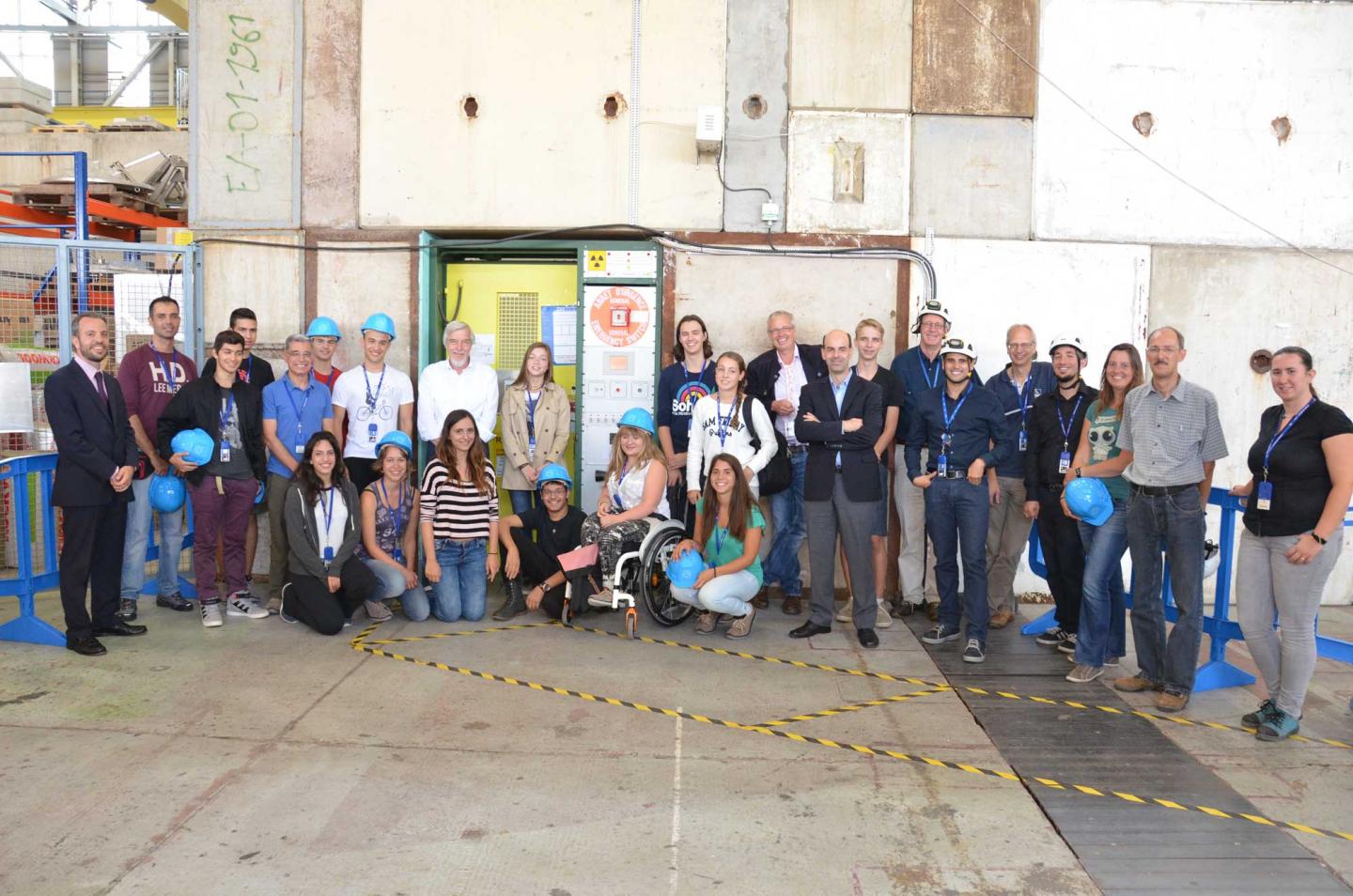After a week of shifts on the T9 beamline at CERN, two teams of high-school students – the winners of CERN's first ever "Beamline for Schools" contest – are ready to analyse their data.
The student teams – Odysseus' Comrades from Varvakios Pilot School in Athens, Greece and Dominicuscollege from Dominicus College in Nijmegen in the Netherlands – were selected out of 292 proposals to spend 10 days conducting their proposed experiments at the fully equipped T9 beamline at CERN. Now the data has been collected, and it's time to count those pions.

For their experiment, Odysseus’ Comrades – a team of 12 – looked at decays of charged pions to investigate the weak force, one of four fundamental forces in physics. "We wanted something simple but understandable that would be connected to the history of CERN," says team member Konstantinos Papathanasiou (17). "We had to learn a lot of new things, but now we understand the physics!" Dominicuscollege – a team of five – grew their own crystals in the classroom to make calorimeters, which they tested with beam at CERN. After two days of calibration, the calorimeters were integrated as a component in the pion-decay experiment.
"The calorimeters are working well, and we have plenty of data," says Charles Timmermans of Nikhef, who is helping out the Dominicuscollege team. "But the best part of the project is seeing the Greek and Dutch students working so well together."
Dedicated CERN staff and users from across CERN departments were on site to guide the students through the experiment. Detector physicists Cenk Yildiz and Saime Gurbuz spent weeks writing data-acquisition software and preparing T9 to run the experiments, and were on hand all week to train the students in the specifics of shift work and taking data.



Highlights included a day of safety awareness and training, where the students experienced a safety drill in a mockup of the LHC tunnel, and visits to CMS, ATLAS, the Antiproton Decelerator and the CAST experiment.

Physicists, engineers and experts in beams, detectors, data acquisition, data analysis, safety and radio protection from across all CERN departments helped with the preparations for the experiment and offered guidance during the experimental phase at CERN.
"The experiments these young students have designed and run are challenging," says Christoph Rembser, the Beamline for Schools project coordinator. "I will encourage them to write a paper at the end for the real science experience, but we will have to see how it goes!"

Students and teachers alike have said the schools will stay in touch. Another Beamline for Schools competition is planned for next year.

